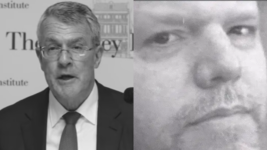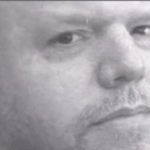Attorney General Waxes Lyrical About His Whistleblower Protections that Fail All

“Improved whistleblower protection has long been an interest of mine,” federal attorney general Mark Dreyfus told The Sydney Institute, during a 5 September speech he gave to the privately-funded policy forum, which was titled, Transparency and Accountability in Politics and What it Means.
And without any note of irony, he went on to state that one of his “proudest achievements” in his “first period of Commonwealth attorney general”, which was under the Gillard-Rudd government in 2013, “was the creation of the Commonwealth’s first public interest disclosure scheme”.
Those who’ve been following the whistleblower prosecutions saga that commenced in mid-2018, when Morrison government AG Christian Porter gave the nod to a hitlist of whistleblower prosecutions, will know that the scheme the nation’s current chief lawmaker is congratulating himself over is the framework set out in the Public Interest Disclosure Act 2013 (Cth) (the PID Act).
And those with an interest in the prosecutions will also be aware that instead of success in protecting whistleblowers from the public service in speaking out about corruption, the PID Act has, thus far, failed every discloser it’s held any bearing upon, as well as those it could have protected except for the exception the legislation makes in covering those who disclose matters involving intelligence.
Indeed, the PID Act is currently failing Australian Taxation Office whistleblower Richard Boyle, who was found to be protected in his external disclosure regarding wrongdoing, as Dreyfus’ scheme neglects to cover him for the preparatory acts he took in compiling his report, and despite his current contemplation of a law that would cover this in the future, the AG is doing nothing to protect Boyle.
Setting wrongs right is criminal
Boyle spoke out about the tax office misapplying a garnishee process, which meant that ATO agents were told to dip into small business accounts to recover debts without any notification at an earlier point in the process than is usually permitted, and this order had been given to ensure that tax office end of financial year figures for 2016-17 appeared more plentiful than they otherwise would have.
And in making his disclosure, Boyle followed the nation’s “first public interest disclosure scheme” to a T, so that when arguing his public interest disclosure defence before the South Australian District Court, he was found not to have broken the law when he divulged the wrongdoing to the ABC in early 2018. Yet, in terms of the steps he took in building his case, he was found unprotected.
As SA Supreme Court Justice David Lovell explained in the 19 June 2024 unsuccessful appeal decision, “It was common ground on appeal that the appellant’s conduct in disclosing the information attracted an immunity from criminal prosecution under” the PID Act.
“The appellant, however, faces criminal charges, not for the disclosure of information he believed needed to be disclosed, but for his conduct in unlawfully gathering evidence he considered would support his disclosure,” his Honour set out, as he clarified that the main issue on appeal was “whether the appellant’s conduct in gathering evidence… also attracts the immunity under the Act”.
Section 10 of the PID Act provides that if “an individual makes a public interest disclosure… the individual is not subject to any civil, criminal or administrative liability”. Yet, the courts have found that this ambiguously written piece of law doesn’t protect against preparatory acts.
So, Boyle is now facing 24 criminal offences that cover fairly minor multiple crimes, including using his mobile phone to take photos of taxpayer information, covertly recording conversations he had with ATO colleagues and uploading taxpayer information onto a secure email account, so his lawyer could access it, if necessary, but as it wasn’t required, the legal professional never looked at it.
And with so many of these crimes lined up against the name of a civilian who spoke out in order to prevent members of the public from continuing to have wrongdoing committed against them by government employees, Boyle could actually spend the rest of his life in prison, all for telling the truth about a practice that was ended due to his exposing it, as the AG and PID Act both encourage.
Transparency that stretches only so far
In describing why he considers transparency and accountability key to good governance, Dreyfus set out that whilst democracies, like Australia’s, are the best form of government, they’re not perfect and in order for these imperfections to be identified and then corrected, a democracy must have a level of transparency that allows for self-correction.
But in raising the whistleblowing scheme as one of his “proudest achievements”, it doesn’t seem to have occurred to the AG that what Boyle did in exposing the ATO wrongdoing was progressing his formula for a successful democracy, in that he brought transparency to an imperfection that had developed in the national tax office and provided the system with the ability to self-correct.
As the nation’s chief lawmaker stood at the podium in Sydney last week, nor did he raise the point that in the November 2023 consultation paper relating to the overhaul of the PID Act that he’s been promising since he was in opposition in 2021, there is contemplation of extending the criminal immunity so that preparatory acts, like Boyle is being grilled over, are covered.
Dreyfus neither pointed out that Boyle’s criminal trial was set to have commenced three days before he delivered his speech, but it had since been postponed as he’s sought special leave to appeal his public interest disclosure defence outcome to the High Court, which could in fact mean that it is found that the criminal immunity should already extend as written to preparatory acts.
Nor was Dreyfus too clear about the success of the PID Act, over the last half decade, as none of the four whistleblowers that prosecutions were launched against in mid-2018 have been saved by the legislation.
ASIS whistleblower Witness K was not protected in having exposed the Australian government bugging the Timor-Leste cabinet offices to get the upper hand in a resource deal, while now gaoled ADF lawyer David McBride, who exposed war crimes committed by special forces in Afghanistan, was blocked from accessing the protections within the PID Act by excessive secrecy red tape.
The only whistleblower that Dreyfus has saved was barrister Bernard Collaery, who was acting on behalf of Witness K, and that was because he intervened in the matter and exercised the power he has under section 71 of the Judiciary Act 1903 (Cth) to end any prosecution he chooses to.
And the AG further thought it best not to mention to those gathered at the forum that he is refusing to use that same power to end the prosecution against Boyle, a man who cleared up wrongdoing at the tax office by providing transparency to a practice, but at the same time he is considering passing laws that would protect someone in Richard’s position when blowing the whistle in the future.







